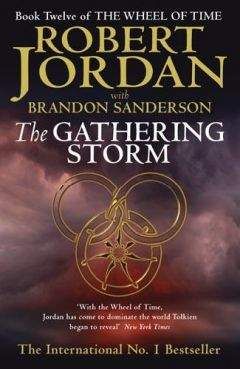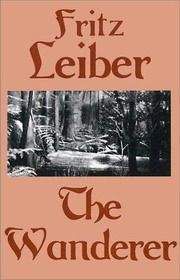The Jewel Merchants
A Comedy in One Act
By
James Branch Cabell
"Io non posso ritrar di tutti appieno:
pero chi si mi caccia il lungo tema,
che molte volte al fatto il dir vieti meno."
TO LOUISE BURLEIGH
This latest avatar of so many notions which were originally hers.
Prudence urges me here to forestall detection, by conceding that this brief play has no pretension to "literary" quality. It is a piece in its inception designed for, and in its making swayed by, the requirements of the little theatre stage. The one virtue which anybody anywhere could claim for The Jewel Merchants is the fact that it "acts" easily and rather effectively.
And candor compels the admission forthwith that the presence of this anchoritic merit in the wilderness is hardly due to me. When circumstances and the Little Theatre League of Richmond combined to bully me into contriving the dramatization of a short story called Balthazar's Daughter, I docilely converted this tale into a one-act play of which you will find hereinafter no sentence. The comedy I wrote is now at one with the lost dramaturgy of Pollio and of Posidippus, and is even less likely ever to be resurrected for mortal auditors.
It read, I still think, well enough: I am certain that, when we came to rehearse, the thing did not "act" at all, and that its dialogue, whatever its other graces, had the defect of being unspeakable. So at each rehearsal we—by which inclusive pronoun I would embrace the actors and the producing staff at large, and with especial (metaphorical) ardor Miss Louise Burleigh, who directed all—changed here a little, and there a little more; and shifted this bit, and deleted the other, and "tried out" everybody's suggestions generally, until we got at least the relief of witnessing at each rehearsal a different play. And steadily my manuscript was enriched with interlineations, to and beyond the verge of legibility, as steadily I substituted, for the speeches I had rewritten yesterday, the speeches which the actor (having perfectly in mind the gist but not the phrasing of what was meant) delivered naturally.
This process made, at all events, for what we in particular wanted, which was a play that the League could stage for half an evening's entertainment; but it left existent not a shred of the rhetorical fripperies which I had in the beginning concocted, and it made of the actual first public performance a collaboration with almost as many contributing authors as though the production had been a musical comedy.
And if only fate had gifted me with an exigent conscience and a turn for oratory, I would, I like to think, have publicly confessed, at that first public performance, to all those tributary clarifying rills to the play's progress: but, as it was, vainglory combined with an aversion to "speech-making" to compel a taciturn if smirking acceptance of the curtain-call with which an indulgent audience flustered the nominal author of The Jewel Merchants…. Now, in any case, it is due my collaborators to tell you that The Jewel Merchants has amply fulfilled the purpose of its makers by being enacted to considerable applause,—and is a pleasure to add that this succès d'estime was very little chargeable to anything which I contributed to the play.
For another matter, I would here confess that The Jewel Merchants, in addition to its "literary" deficiencies, lacks moral fervor. It will, I trust, corrupt no reader irretrievably, to untraversable leagues beyond the last hope of redemption: but, even so, it is a frankly unethical performance. You must accept this resuscitated trio, if at all, very much as they actually went about Tuscany, in long ago discarded young flesh, when the one trait everywhere common to their milieu was the absence of any moral excitement over such-and-such an action's being or not being "wicked." This phenomenon of Renaissance life, as lived in Italy in particular, has elsewhere been discussed time and again, and I lack here the space, and the desire, either to explain or to apologize for the era's delinquencies. I would merely indicate that this point of conduct is the fulcrum of The Jewel Merchants.
The play presents three persons, to any one of whom the committing of murder or theft or adultery or any other suchlike interdicted feat, is just the risking of the penalty provided against the breaking of that especial law if you have the vile luck to be caught at it: and this to them is all that "wickedness" can mean. We nowadays are encouraged to think differently: but such dear privileges do not entitle us to ignore the truth that had any of these three advanced a dissenting code of conduct, it would, in the time and locality, have been in radical irreverence of the best-thought-of tenets. There was no generally recognized criminality in crime, but only a perceptible risk. So must this trio thriftily adhere to the accepted customs of their era, and regard an infraction of the Decalogue (for an instance) very much as we today look on a violation of our prohibition enactments.
In fact, we have accorded to the Eighteenth Amendment almost exactly the status then reserved for Omnipotence. You found yourself confronted by occasionally enforced if obviously unreasonable supernal statutory decrees, which every one broke now and then as a matter of convenience: and every now and then, also, somebody was caught and punished, either in this world or in the next, without his ill-fortune's involving any disgrace or particular reprehension. As has been finely said, righteousness and sinfulness were for the while "in strange and dreadful peace with each other. The wicked man did not dislike virtue, nor the good man vice: the villain could admire a saint, and the saint could excuse a villain, in things which we often shrink from repeating, and sometimes recoil from believing."
Such was the sixteenth-century Tuscan view of "wickedness." I have endeavored to reproduce it without comment.
So much of ink and paper and typography may be needed, I fear, to remind you, in a more exhortatory civilization, that Graciosa is really, by all the standards of her day, a well reared girl. To the prostitution of her body, whether with or without the assistance of an ecclesiastically acquired husband, she looks forward as unconcernedly as you must by ordinary glance out of your front window, to face a vista so familiar that the discovery of any change therein would be troubling. Meanwhile she wishes this sorrow-bringing Eglamore assassinated, as the obvious, the most convenient, and indeed the only way of getting rid of him: and toward the end of the play, alike for her and Guido, the presence of a corpse in her garden is merely an inconvenience without any touch of the gruesome. Precautions have, of course, to be taken to meet the emergency which has arisen: but in the dead body of a man per se, the lovers can detect nothing more appalling, or more to be shrunk from, than would be apparent if the lifeless object in the walkway were a dead flower. The thing ought to be removed, if only in the interest of tidiness, but there is no call to make a pother over it.
As for our Guido, he is best kept conformable to modern tastes, I suspect, by nobody's prying too closely into the earlier relations between the Duke and his handsome minion. The insistently curious may resort to history to learn at what price the favors of Duke Alessandro were secured and retained: it is no part of the play.
Above all, though, I must remind you that the Duke is unspurred by malevolence. A twinge of jealousy there may be, just at first, to find his pampered Eglamore so far advanced in the good graces of this pretty girl, but that is hardly important. Thereafter the Duke is breaking no law, for the large reason that his preference in any matter is the only law thus far divulged to him. As concerns the man and the girl he discovers on this hill-top, they, in common with all else in Tuscany, are possessions of Duke Alessandro's. They can raise no question as to how he "ought" to deal with them, for to your chattels, whether they be your finger rings or your subjects or your pomatum pots or the fair quires whereon you indite your verses, you cannot rationally he said to "owe" anything…. No, the Duke is but a spirited lad in quest of amusement: and Guido and Graciosa are the playthings with which, on this fine sunlit morning, he attempts to divert himself.
This much being granted—and confessed,—we let the play begin.
Dumbarton Grange, June, 1921
* * * * *
["Alessandro de Medici is generally styled by the Italian authors the first duke of Florence; but in this they are not strictly accurate. His title of duke was derived from Città, or Cività di Penna, and had been assumed by him several years before he obtained the direction of the Florentine state. It must also be observed, that, after the evasion of Eglamore, Duke Alessandro did not, as Robertson observes, 'enjoy the same absolute dominion as his family have retained to the present times,' (Hist. Charles V. book v.) he being only declared chief or prince of the republic, and his authority being in some measure counteracted or restrained by two councils chosen from the citizens, for life, one of which consisted of forty-eight, and the other of two hundred members. (Varchi, Storia Fior. p. 497: Nerli, Com. lib. xi. pp. 257, 264.)"]
* * * * *
"Diamente nè smeraldo nè zaffino."
Originally produced by the Little Theatre League of Richmond, Virginia, at the Binford High School Auditorium, 22 February, 1921.
Original Cast
GRACIOSA………………………Elinor Fry
Daughter of Balthazar Valori
GUIDO……………………Roderick Maybee
A jewel merchant
ALESSANDRO DE MEDICI………Francis F. Bierne
Duke of Florence
Produced under the direction of Louise Burleigh.
* * * * *
The play begins with the sound of a woman's voice singing a song (adapted from Rossetti's version) which is delivered to the accompaniment of a lute.
SONG:
Let me have dames and damsels richly clad
To feed and tend my mirth,
Singing by day and night to make me glad.
Let me have fruitful gardens of great girth
Filled with the strife of birds,
With water-springs and beasts that house i' the earth.
Let me seem Solomon for lore of words,
Samson for strength, for beauty Absalom.
Knights as my serfs be given;
And as I will, let music go and come,
Till, when I will, I will to enter Heaven.
As the singing ends, the curtain rises upon a corner of Balthazar Valori's garden near the northern border of Tuscany. The garden is walled. There is a shrine in the wall: the tortured figure upon the crucifix is conspicuous. To the right stands a rather high-backed stone bench: by mounting from the seat to the top of the bench it is possible to scale the wall. To the left a crimson pennant on a pole shows against the sky. The period is 1533, and a few miles southward the Florentines, after three years of formally recognizing Jesus Christ as the sole lord and king of Florence, have lately altered matters as profoundly as was possible by electing Alessandro de Medici to be their Duke.


